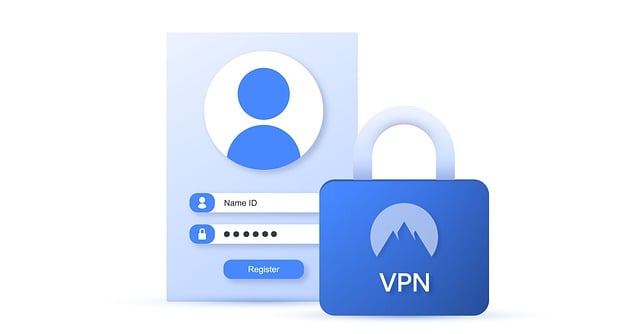A Personal Financial Advisor (PFA) is a trusted guide who helps individuals and families navigate complex financial landscapes by offering expert knowledge and personalized strategies. PFAs provide services like retirement planning, investment portfolio management, tax optimization, and wealth preservation, simplifying intricate concepts for clear decision-making. They tailor strategies based on risk tolerance and current financial situations, ensuring long-term success and financial stability. Choosing the right PFA involves seeking tailored approaches for unique circumstances, assessing expertise, and prioritizing communication and transparency. Building a strong relationship with your PFA through regular meetings and active engagement is crucial for achieving long-term financial goals.
A Personal Financial Advisor is your guide to navigating the complex world of money management. In today’s economic landscape, their expertise can be invaluable. This article delves into the multifaceted role these advisors play in helping individuals achieve financial security and growth. From understanding market trends to crafting personalized strategies, we explore the numerous benefits of hiring a professional. Learn about their key responsibilities and discover how to choose the perfect fit for your unique needs.
- Understanding the Role of a Personal Financial Advisor
- Benefits of Hiring a Professional Financial Guide
- Key Responsibilities: What to Expect from Your Advisor
- Choosing the Right Financial Advisor for Your Needs
- Building a Long-Term Relationship: Tips for Effective Collaboration
Understanding the Role of a Personal Financial Advisor

A Personal Financial Advisor is a professional who helps individuals and families manage their finances effectively. Their role extends far beyond mere money management; they serve as trusted guides, offering expert knowledge and personalized strategies to navigate complex financial landscapes. By understanding your unique goals, risk tolerance, and investment preferences, these advisors create tailored plans that align with your aspirations.
These professionals provide a range of services, from retirement planning and investment portfolio management to tax optimization and wealth preservation. They empower clients to make informed decisions by explaining intricate financial concepts in simple terms, ensuring every move is strategically sound. With their help, individuals can gain clarity, build long-term security, and achieve financial independence.
Benefits of Hiring a Professional Financial Guide

Hiring a personal financial advisor can be a game-changer for managing your money. These professionals offer invaluable expertise and guidance, helping individuals navigate the complex world of finance with confidence. With their assistance, you gain access to tailored strategies designed to meet your unique financial goals. Whether it’s saving for retirement, investing in real estate, or planning for your children’s education, a Personal Financial Advisor (PFA) provides insights that can significantly impact your long-term success.
One of the key benefits is their ability to offer personalized advice. PFAs assess your current financial situation, risk tolerance, and goals to create customized plans. They demystify investment options, tax strategies, and retirement planning, ensuring you make informed decisions. Additionally, these advisors keep you accountable, regularly reviewing your progress and making adjustments as needed. This support is crucial for staying on track and achieving financial stability.
Key Responsibilities: What to Expect from Your Advisor

When you engage a Personal Financial Advisor, you’re bringing on board an expert guide who will help navigate your financial complexities. Their key responsibilities span a wide range, all geared towards empowering you to make informed and smart money decisions. Firstly, they’ll assess your current financial situation, including income, assets, and debts, to create a comprehensive plan aligned with your goals and risk tolerance. This involves regular reviews of your investments, retirement accounts, insurance policies, and tax strategies.
Your advisor will also offer valuable insights and education on various financial matters, keeping you apprised of market trends and opportunities. They’ll facilitate communication between different financial service providers, ensuring a seamless and coordinated approach to managing your wealth. Whether it’s planning for retirement, saving for your children’s education, or preparing for unexpected events, your Personal Financial Advisor will tailor strategies to help you achieve these milestones effectively and efficiently.
Choosing the Right Financial Advisor for Your Needs

Choosing the right personal financial advisor is a crucial step in navigating your financial future. It’s essential to find someone who aligns with your goals and values, offering tailored strategies for your unique circumstances. Start by assessing your specific needs—whether it’s retirement planning, investment management, or debt reduction. Look for advisors with expertise in these areas and a proven track record of success.
Reputation and qualifications are key indicators. Check their certifications, years of experience, and client testimonials to gauge their reliability. A good financial advisor will prioritize open communication, providing transparent insights and regularly updating you on market trends and your portfolio’s performance. They should make complex financial concepts understandable, ensuring you feel empowered to make informed decisions.
Building a Long-Term Relationship: Tips for Effective Collaboration

Building a long-term relationship with your personal financial advisor is crucial for effective collaboration and achieving your financial goals. Start by setting clear objectives—what you want to accomplish, whether it’s saving for retirement, planning for education, or managing debt. Share your financial situation openly, including assets, income, and debts, so your advisor can create a tailored strategy. Regular communication is key; schedule periodic meetings to review progress, discuss changes in your life or market conditions, and make adjustments as needed.
Engage actively with your advisor by asking questions and seeking clarification on any aspects of the plan. Remember, a successful partnership involves mutual respect and trust. Your financial advisor should listen attentively to your needs, concerns, and aspirations, offering guidance while respecting your autonomy in decision-making. By fostering this collaborative environment, you can navigate financial complexities with confidence, knowing your advisor has your best interests at heart.

